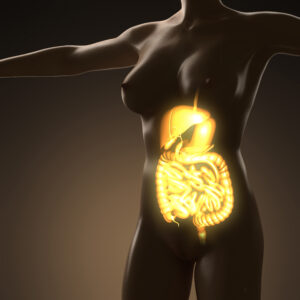
Understanding Dysbiosis: A Holistic View of Gut Health
What is Dysbiosis?
Dysbiosis, often referred to as “leaky gut” in functional medicine, describes an imbalance in the gut microbiome, leading to an overgrowth of harmful bacteria and a decrease in beneficial bacteria. This imbalance can disrupt the gut lining’s integrity, creating gaps that allow undigested food particles, toxins, and bacteria to leak into the bloodstream.
Causes of Dysbiosis
Poor Diet: High in processed foods, sugar, and unhealthy fats.
Chronic Stress: Can affect gut health and increase permeability.
Infections: Bacterial, viral, or fungal infections can damage the gut lining.
Medications: Long-term use of NSAIDs and antibiotics can disrupt gut health.
Food Sensitivities: Common culprits include gluten and dairy.
Symptoms of Dysbiosis
Digestive Issues: Bloating, gas, diarrhea, or constipation.
Autoimmune Conditions: Increased risk of autoimmune diseases.
Food Sensitivities: New or worsening food allergies.
Fatigue: Chronic tiredness and lack of energy.
Skin Problems: Conditions like eczema or acne.
The Role of Functional Medicine and Traditional Medicine in Addressing Dysbiosis
Both functional and traditional medicine approaches aim to restore balance to the gut microbiome.
Functional Medicine: Focuses on identifying and addressing the root causes of dysbiosis, often using a holistic approach that includes:
Dietary Changes:
Elimination Diet: Identify and remove food sensitivities.
Anti-inflammatory Foods: Incorporate fruits, vegetables, healthy fats, and lean proteins.
Bone Broth: Rich in collagen, it can help heal the gut lining.
Supplements:
Probiotics: Support a healthy gut microbiome.
L-Glutamine: An amino acid that helps repair the gut lining.
Zinc: Essential for maintaining gut barrier function.
Lifestyle Modifications:
Stress Management: Techniques like yoga, meditation, or deep breathing.
Regular Exercise: Promotes overall health and gut function.
Adequate Sleep: Essential for healing and recovery.
Traditional Medicine: Primarily focuses on treating symptoms and addressing specific health concerns related to dysbiosis, often using:
Medications: Antibiotics to address bacterial infections.
Dietary Recommendations: General guidelines for a balanced diet.
Conclusion
Dysbiosis is a complex condition that can significantly impact overall health. By understanding its causes and symptoms, and implementing a holistic approach that combines functional and traditional medicine strategies, individuals can take proactive steps toward healing their gut and improving their well-being.
This revised blog post aims to bridge the gap between functional and traditional medicine perspectives on dysbiosis, providing a more comprehensive and informative resource for your readers.
What do you think? Do you want to explore any specific aspect of dysbiosis in more detail? Maybe we could discuss the role of probiotics in restoring gut health, or delve into the connection between dysbiosis and autoimmune diseases.
